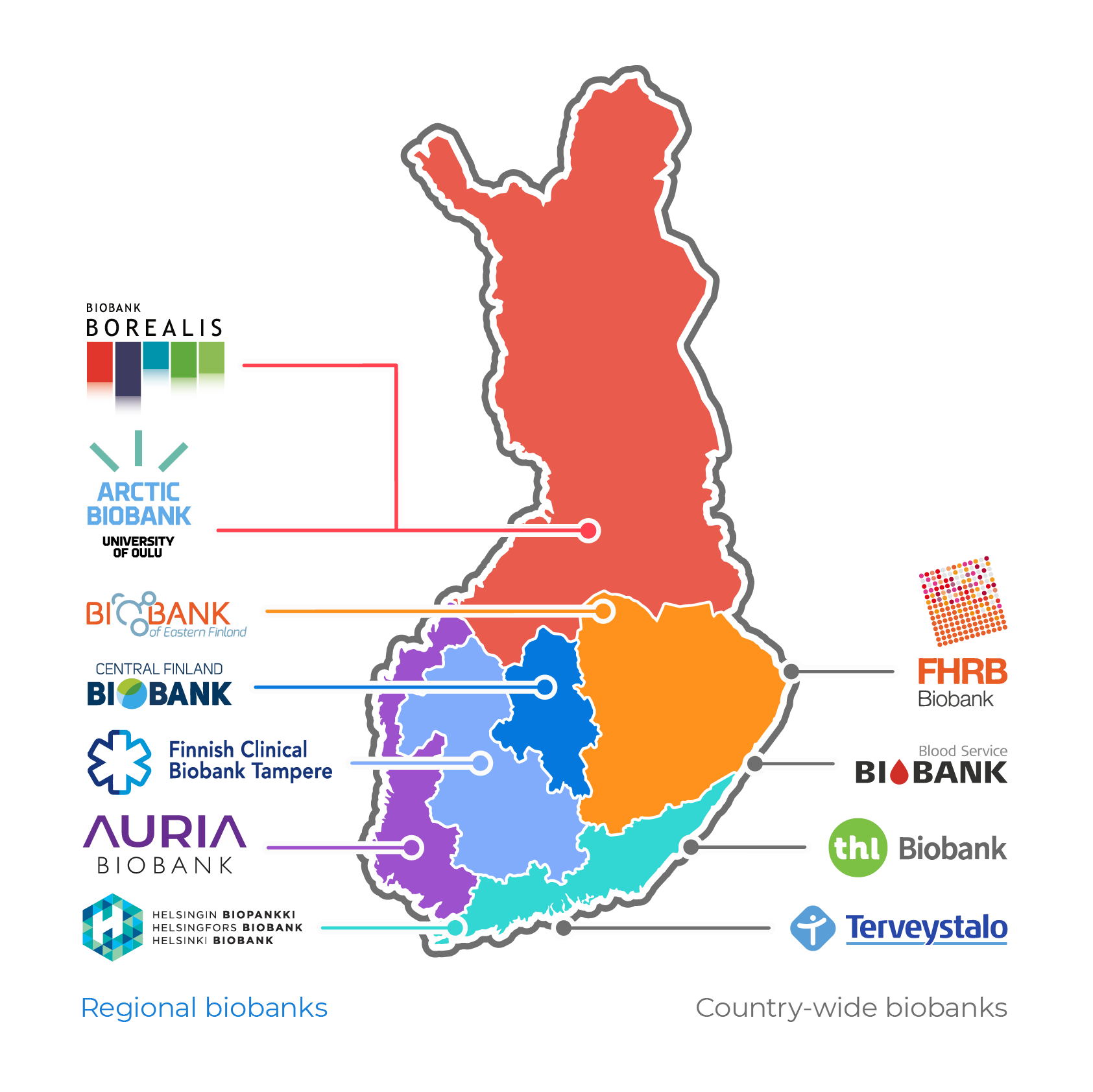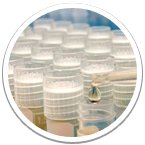Biobank info
Biobanking activities mean the professional and uniform practices of collecting, storing and releasing human biological samples (blood samples, biopsies, etc.) for purposes of medical research in accordance with pre-determined principles. THL Biobank stores collections of human biological samples and information associated with the samples that have been collected for research purposes before the biobank was established or that will be collected specifically for future biobank research.
Biobanking activities are based on voluntary donations of samples, and the objective is to ensure a high level of privacy protection and to secure that the interests and welfare of the sample donors are always given priority. Biobanks store donors' samples and information usually for long periods of time so that samples can be used in future research. Research into factors affecting health often requires large sets of data as well as follow-up that possibly extends over decades.
The purpose of biobanks is to create high-quality settings for medical research that are subject to supervision by the authorities and where particular attention is paid to the rights of the sample donors.
Finnish Biobanks
In Finland 11 biobanks operate in the health care districts, universities, Finnish Institute for Health and Welfare and Terveystalo. Finnish Medicines Agency Fimea directs and supervises the biobank activity in Finland, and maintains a national biobank register.
Read more about Finnish biobanks

Finnish Biobank Cooperative, FINBB
FINBB is a biobank cooperative, established in 2017 and owned by Finnish universities and university hospitals and the Finnish Institute for Health and Welfare. All public biobanks in Finland are members of FINBB. THL Biobank joined the cooperative in 2019.




